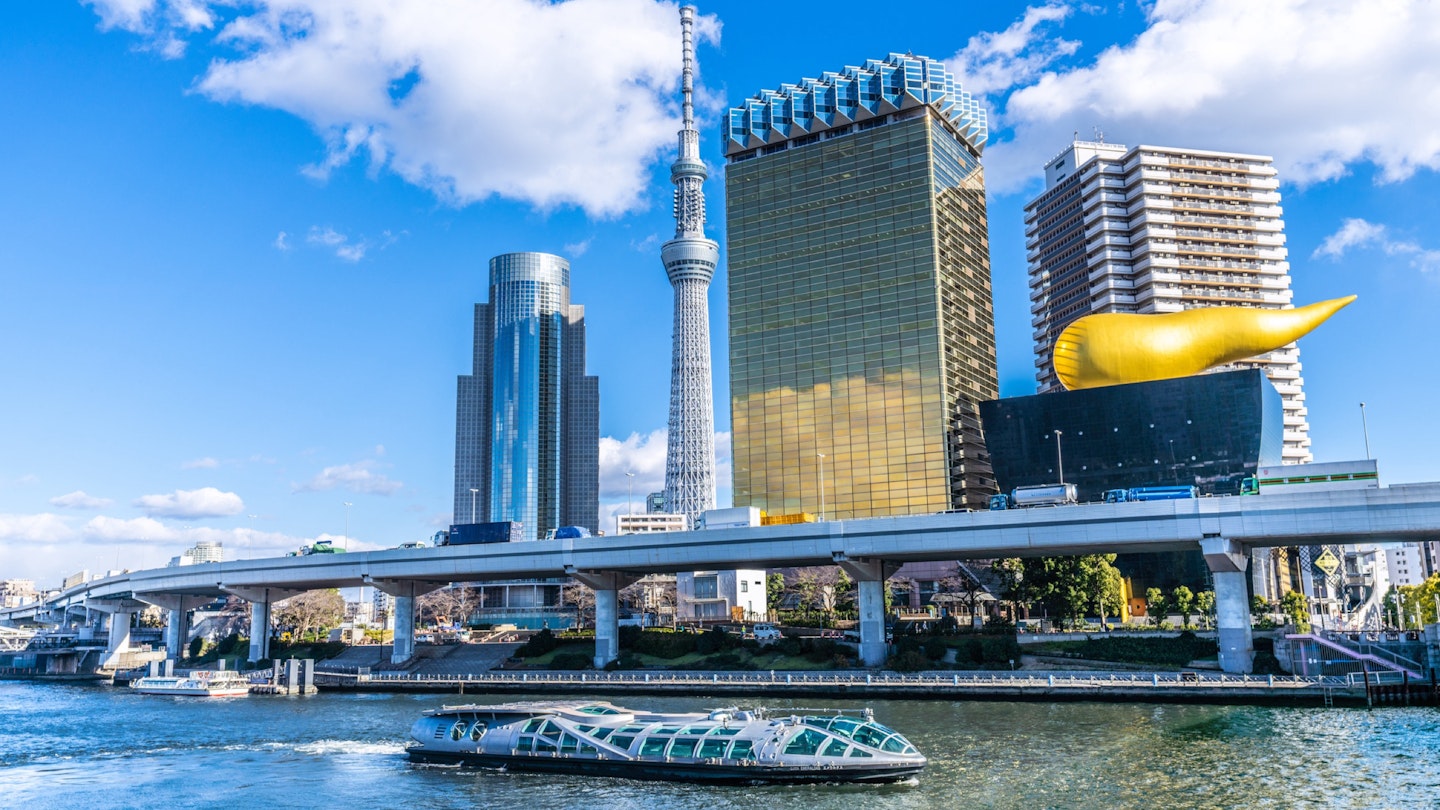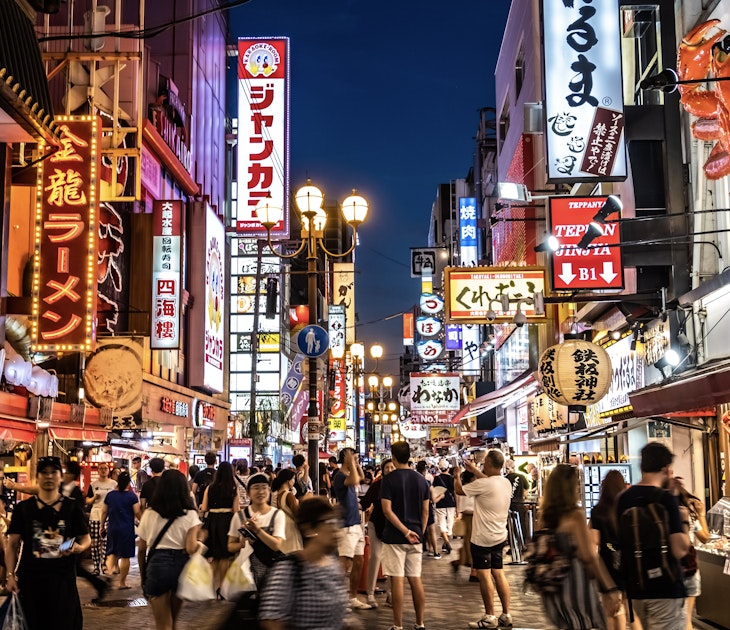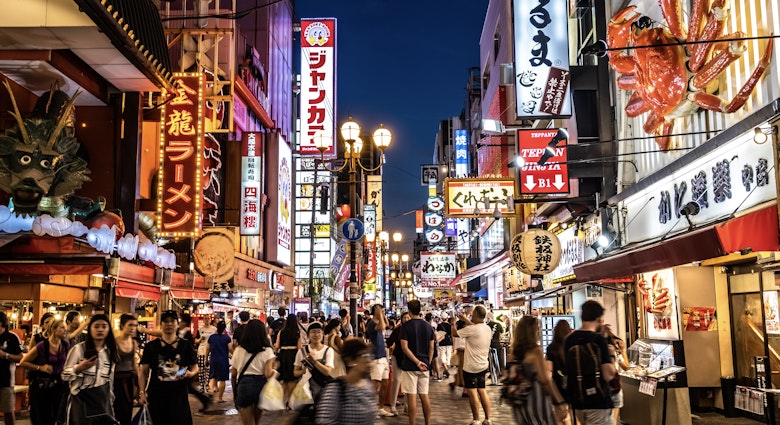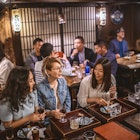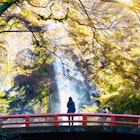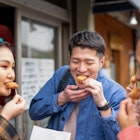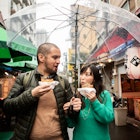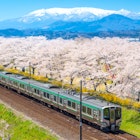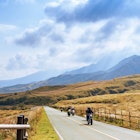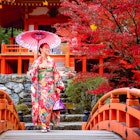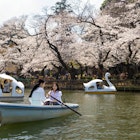Tokyo and Osaka are two world-class cities with famous sights and hidden corners that offer something for every kind of traveler. Hit some of the most famed top-shelf experiences as well as take the road less traveled with some of our favorite unique sights and hidden gems.

Osaka
Hidden gem: Kishiwada Castle
Originally built in the 14th century, Kishiwada Castle is the quaint seaside castle that put this small coastal town on the map.
The castle that stands today is a three-story concrete reconstruction erected in 1954, surrounded by the original stone walls and moat. The first two levels house a museum dedicated to the history of the castle, and the third a viewing platform with lovely views over Osaka Bay.
What makes Kishiwada Castle unique is its Hachijin-no-niwa, an abstract rock garden designed by landscape artist Mirei Shigemori. Best viewed from the castle above, it’s a designated National Site of Scenic Beauty based on Zhuge Liang’s Eight Element Battle Formation of ancient China.

Hidden gem: Katsuo temple, and its daruma
Katsuo temple, idyllically located in the mountains of Minō, first gained a reputation for triumph in the 9th century when prayers made here were credited for Emperor Seiwa’s recovery from illness.
Many centuries later, this temple of “victory” continues to attract those seeking success in the form of eye-catching daruma dolls.
Known at Katsuo temple as kachi daruma (“winning daruma”), these round, red papier-mâché dolls are used for goal setting, with one eye filled in when setting the goal and the other upon its completion. When the goal is achieved, the doll is returned to the temple in gratitude.
The sheer number of two-eyed daruma that dot almost every available space in the temple complex serve as an inspiring display of dreams come to fruition.

Famous site: Dōtonbori
Perhaps the city’s most iconic attraction, Dōtonbori is synonymous with Osaka. Encompassing Dōtonbori Canal and Dōtonbori Street, running parallel to the canal’s southern bank, this neon-lit district, full of gaudy moving signs, is one of the most alluring places to bask in Osaka’s downtown atmosphere.
Dōtonbori is best visited at night when the area becomes shrouded in a fluorescent glow. Not to be missed is the Glico Running Man billboard twinkling on the water by Ebisu-bashi Bridge and the eye-catching Kani Dōraku mechanical crab.
Packed with stimulation for all the senses, and some of the tastiest food the city has to offer, the best way to explore is to simply let your camera and stomach lead the way.

Hidden gem: Cycling from Umeda to Urban Resort Maishima
A reclaimed recreational island known for its concentration of sporting and outdoor facilities, Maishima is the ideal setting for a relaxed picnic, park time and seaside strolls.
Rent a bike from one of the many auto kiosks around Umeda and take a leisurely hour-long ride to the Hotel Lodge Maishima on the western end of the island, where you can explore the picturesque grounds and enjoy a barbecue.
Other highlights include Osaka Maishima Seaside Park, especially beautiful from April to early May when the baby blue nemophila flowers are in bloom, the Maishima Seaside Promenade and Maishima Shin-Yuhigaoka sunset point.

Hidden gem: Local food in Shin-umeda shokudōgai
‘Shokudōgai’ literally means ‘restaurant street’ and this unassuming labyrinthine shopping mall nestled under the railway tracks of JR Osaka Station, delivers.
A one-stop culinary haven, Shin-umeda shokudōgai features about 100 restaurants and food stores over two levels, offering everything from Osakan specialties to French food, with all the classic Japanese favorites in between. It’s an ideal spot to try lots of small bites and indulge in what locals call kuidaore or “eating until you drop”.
The delicious food aside, perhaps the biggest draw of Shin-umeda shokudōgai is the retro atmosphere. With low ceilings, numerous connected alleyways, and tiny eateries, you’ll feel as if you’ve been transported into a vast warren of Shōwa-era nostalgia.
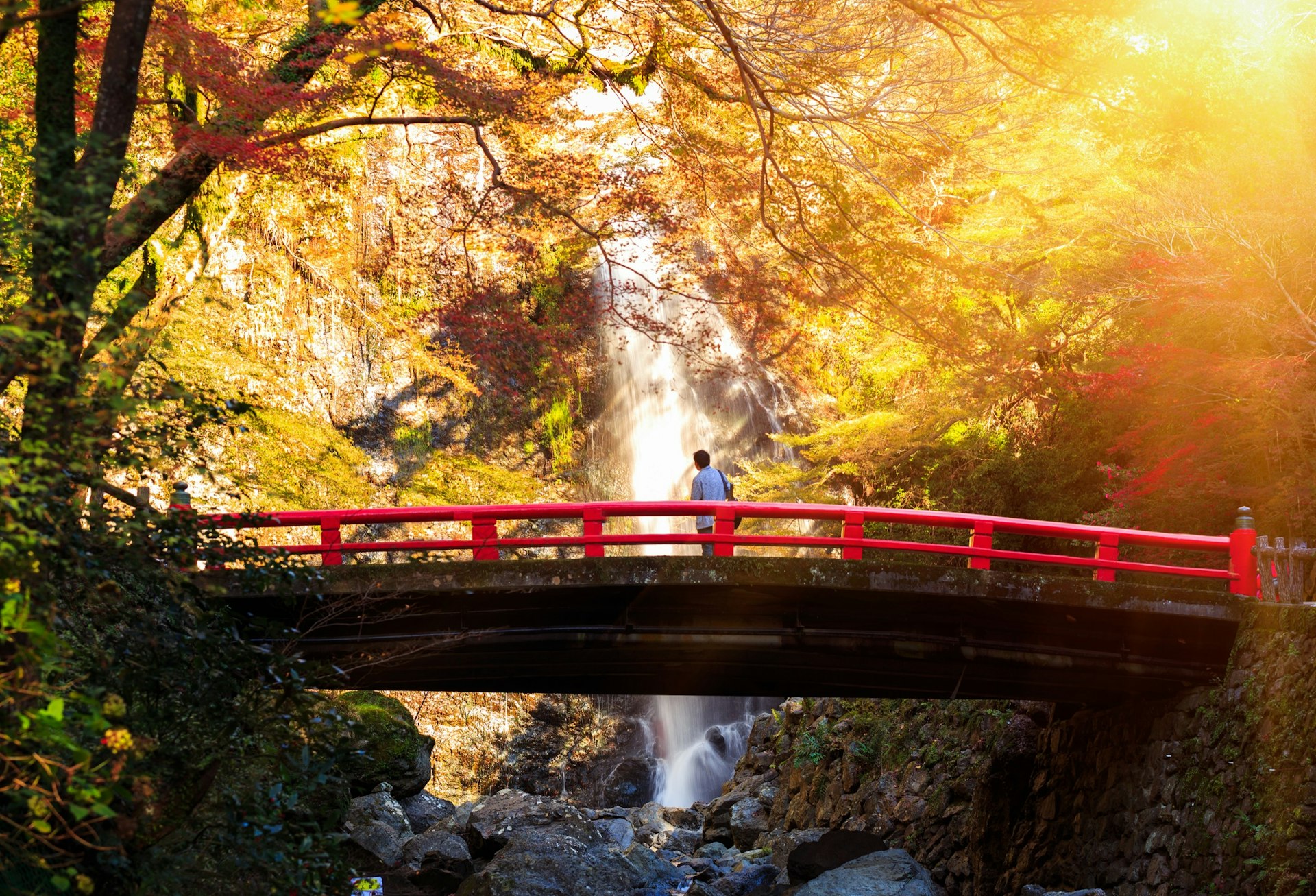
Famous site: Minō Park/Falls
Minō Park is an accessible quasi-national park just 30 minutes by train from Umeda Station, and one of the most famed fall foliage viewing spots in the entire Kansai region.
With gorgeous natural scenery that puts on a show in every season, Minō Park visitors can enjoy a relaxed 40-minute walk culminating at the beautiful 108-foot-high Minō Falls. Allow some extra time to stop by points of interest along the trail that entice you, which include various places of worship and even an insect museum.
Make a whole day of it by combining a visit with Katsuo temple, a further hour and a half walk from the waterfall.
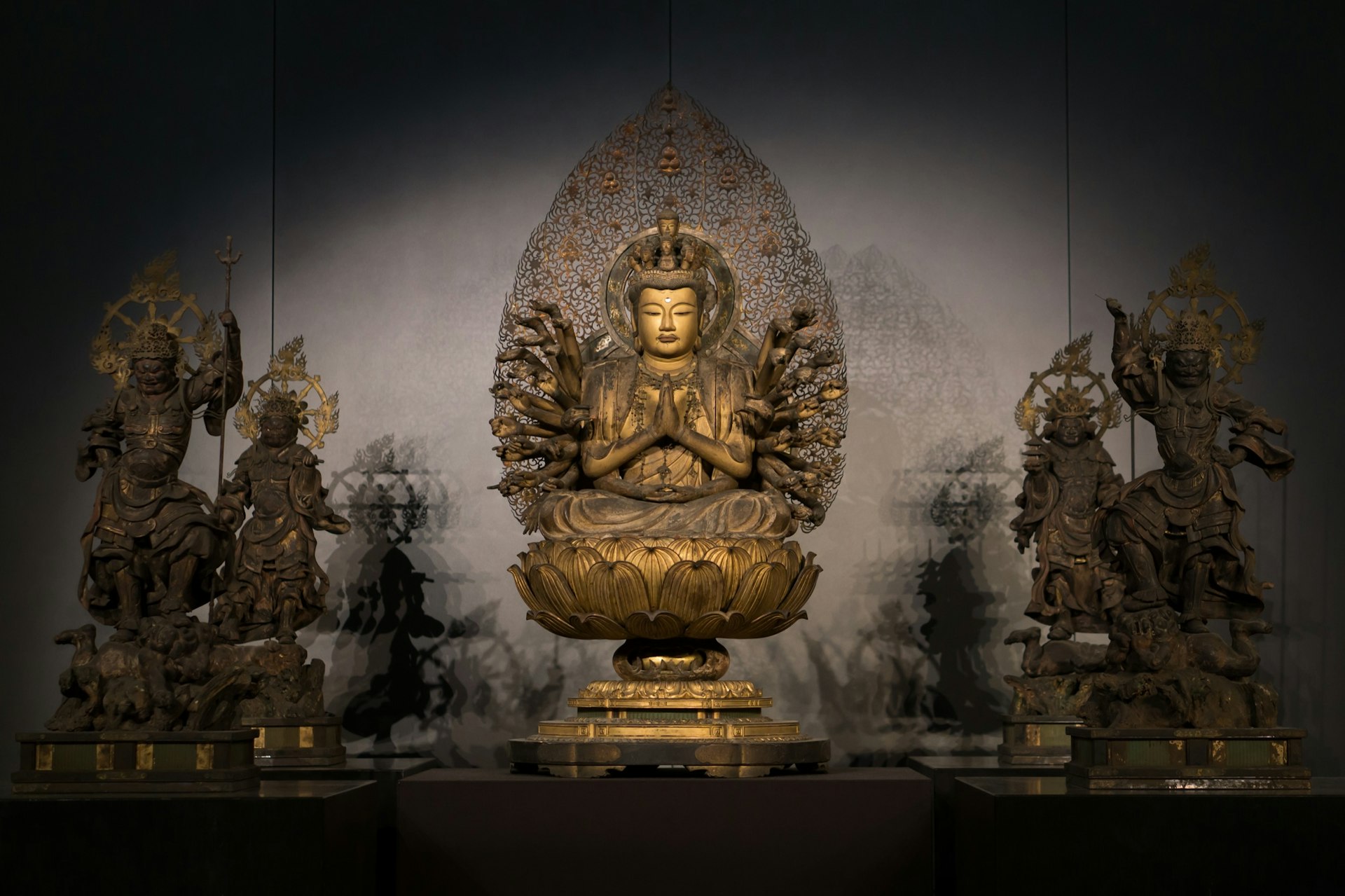
Tokyo
Famous site: Tokyo National Museum
With a history of 150 years, the exceptional Tokyo National Museum is the oldest and largest of Japan’s top-level museums.
Located in Ueno Park, the grandiose façade of the honkan (main gallery) already sets the tone for the impressive collection of about 110,000 artworks and antiquities that lay beyond, including nearly 100 national treasures and many more important cultural properties.
With around 3,000 items on display in the permanent collection, regular temporary exhibitions, and six buildings over the large complex, you can easily spend many hours in cultural appreciation here.
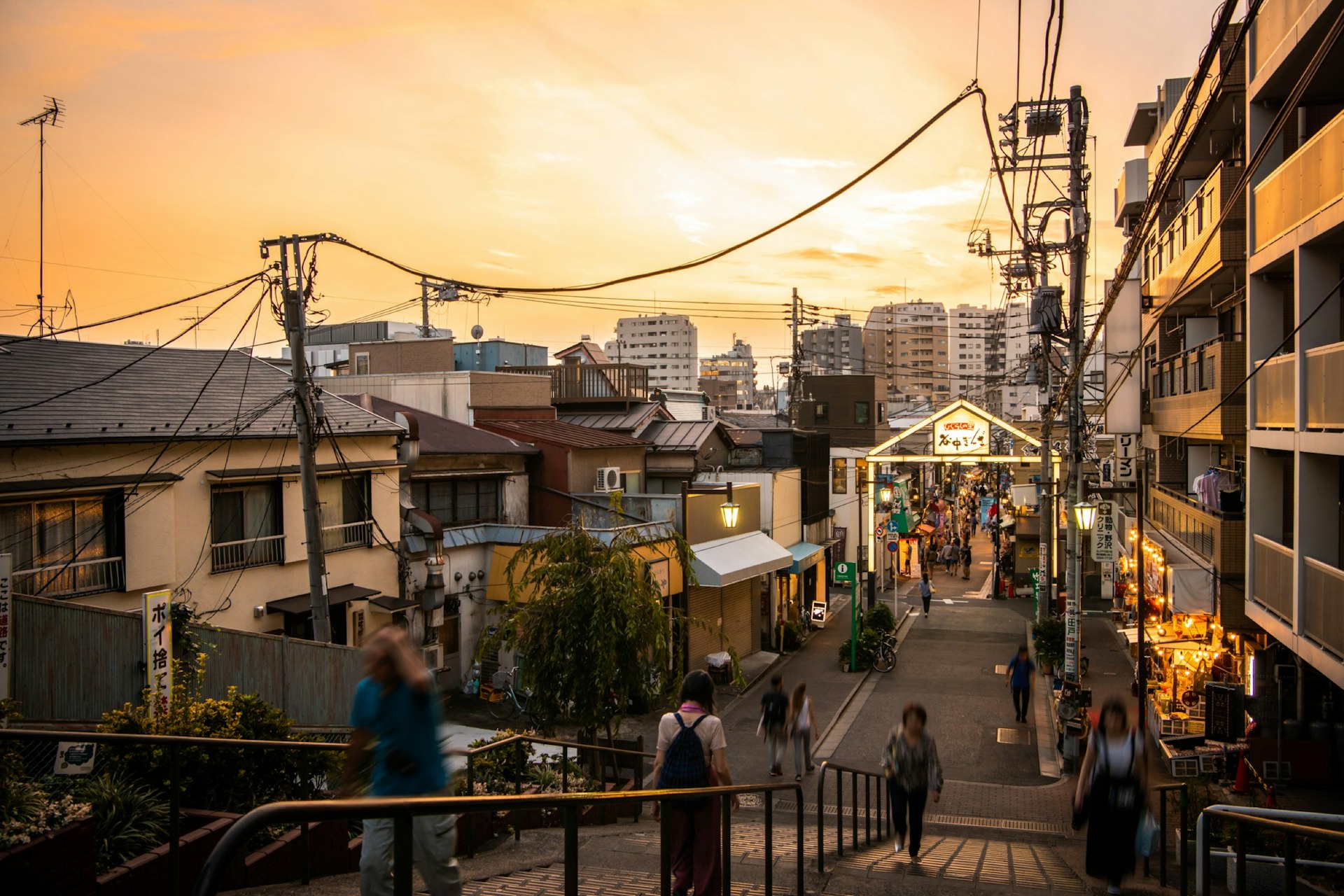
Hidden gem: Yanesen
For an appreciable local feel, pay a visit to the quaint Yanesen area, the collective name for the Yanaka, Nezu and Sendagi neighborhoods. This charming part of the city was largely spared during WWII air raids and continues to be an endearing and living example of how residential Tokyo appeared many decades ago.
The perfect starting point is Yanaka Ginza historic shopping street, lined with locally-owned shops and cafes. It has a distinctive feline theme – the motif of the area. Here you can peruse the artisanal wares and grab delicious bite-size snacks to fuel your wanderings, including the popular cat-shaped taiyaki cakes.
If you’re in the area around dusk, be sure to time a stop at the Yūyake Dandan stairs, a renowned spot to view the sunset.
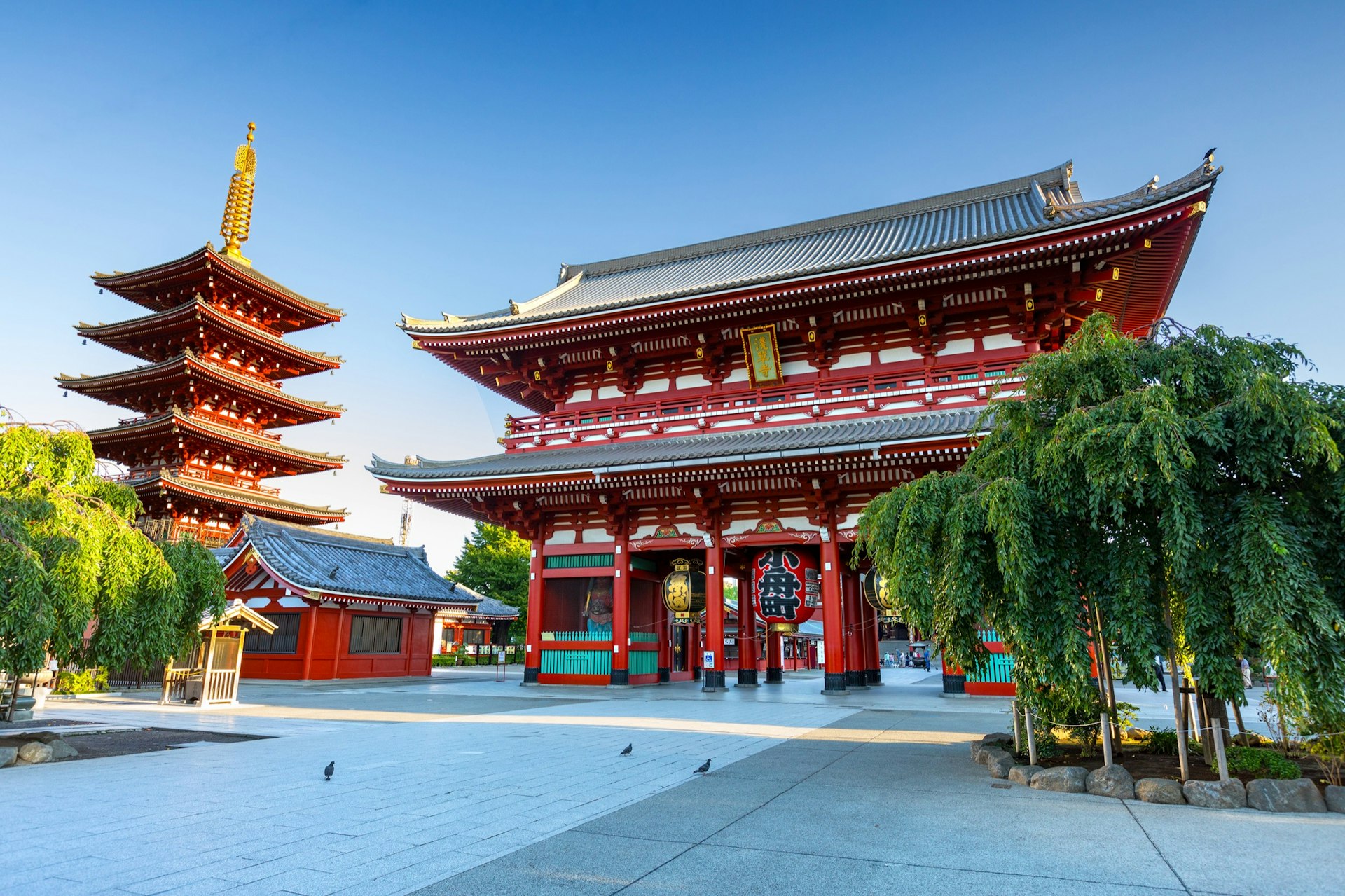
Famous site: Sensō-ji
If you’re going to visit one temple in Tokyo, it’s hard to look past the brilliantly vibrant Sensō-ji. A cultural and religious institution that has drawn visitors to Asakusa since its inception in 645, it is in fact Tokyo’s oldest temple.
Feelings of anticipation are primed by the temple approach, starting with Kaminarimon Gate and its huge lantern, followed by a stroll along Nakamise-dōri and a stop for some traditional snacks.
At the temple itself, be struck by the striking vermillion hue of the impressive main hall and punctuating five-story pagoda. For a different view, consider stopping by at night when it becomes quiet and the temple looms bright against the night sky.
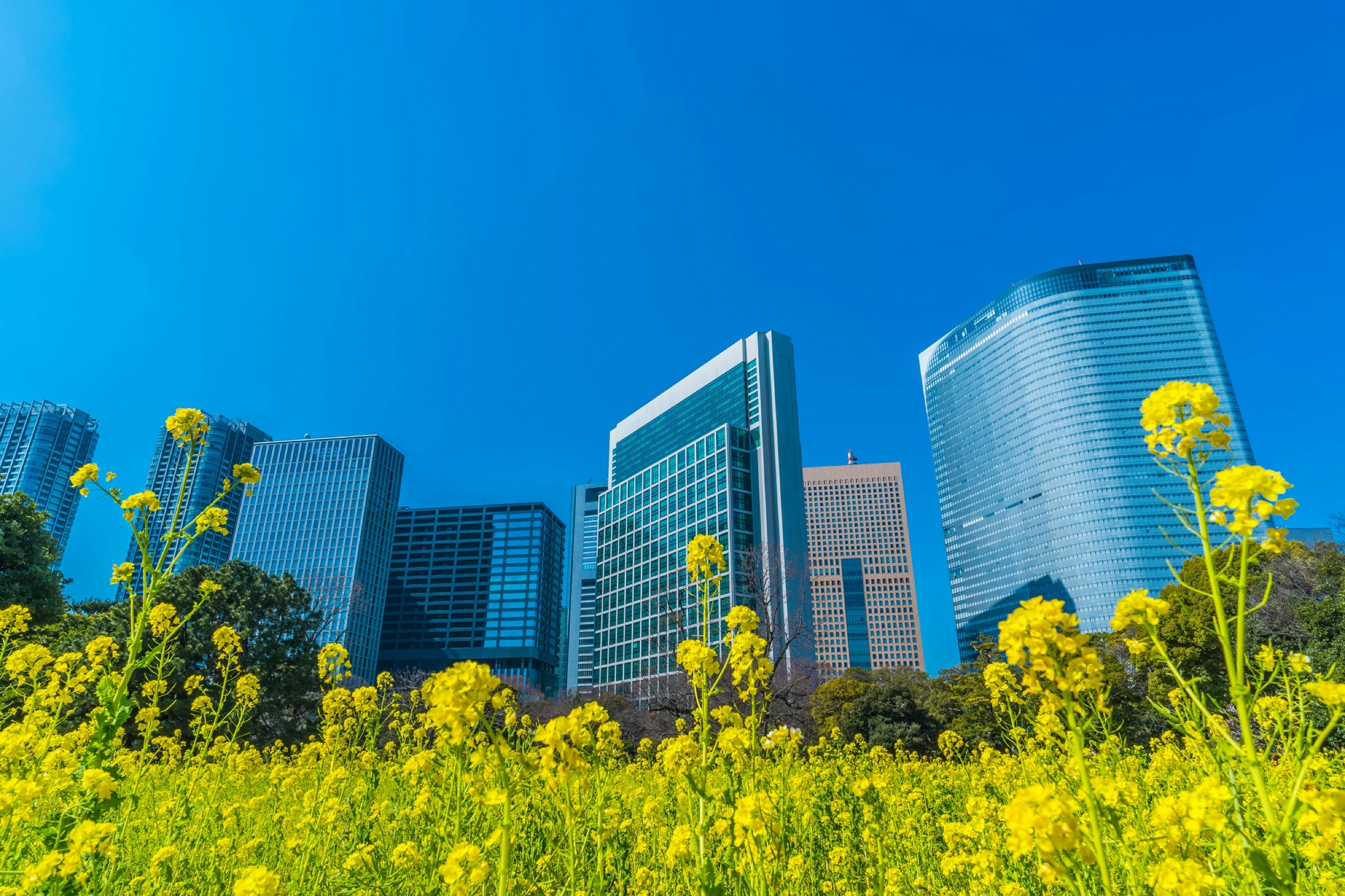
Famous site: Hama-rikyū Onshi-teien
Hama-rikyū Onshi-teien is an attractive landscape garden in Tokyo’s waterfront Shiodome district with a special attribute. Connected to Tokyo Bay, the garden features seawater ponds that change level with the tides.
Like most Japanese gardens, you’ll find something to delight here in every season – maples and gingkos in fall, plum blossoms in late winter, and cherry blossoms, peonies and canola blossoms in spring – along with a charming traditional teahouse situated on one of the tidal ponds.
An interesting way to get here is to travel with a combined ticket from Asakusa on the Water Bus (water taxi) that will drop you off right on the garden grounds (entry to the garden included).

Famous site: Golden Gai
Golden Gai is a popular bar precinct that features more than 200 den-like drinking establishments, around 10 minutes by foot from JR Shinjuku Station.
Straddled across two stories and six interconnecting alleyways, and all crammed into the space of one city block, this haphazard network of bars provides a unique atmosphere that appears to have jumped from the pages of a storybook.
In fact, much of the fun is in the discovery of discreet doors and hidden staircases that feel as if they transport you to another mini-world. Often frequented by actors, musicians and celebrities, you never know who you’ll brush shoulders with.

Hidden gem: Kappabashi “Kitchen Town”
A fifteen minute walk from Sensō-ji will find you on Kappabashi-dōri, a half-mile-long street dedicated to kitchenware. You’ll know you’ve arrived when you see the 36-foot-high statue of a chef’s head complete with a tall white hat that has come to symbolize the neighborhood, known locally as “Kitchen Town.”
While it largely serves the restaurant industry, there are plenty of opportunities for the casual shopper and amateur chef to pick up top-quality Japanese knives, chopsticks, bento boxes, crockery and just about any kitchen gadget imaginable – all for wholesale prices.
Take a look at the shokuhin sampuru on sale here too – the ubiquitous plastic food models that help diners see what meals are available at an eatery before they enter.
You might also like
Returning to the best of Tokyo and Osaka
These attractions in Tokyo and Osaka will awaken your five senses

